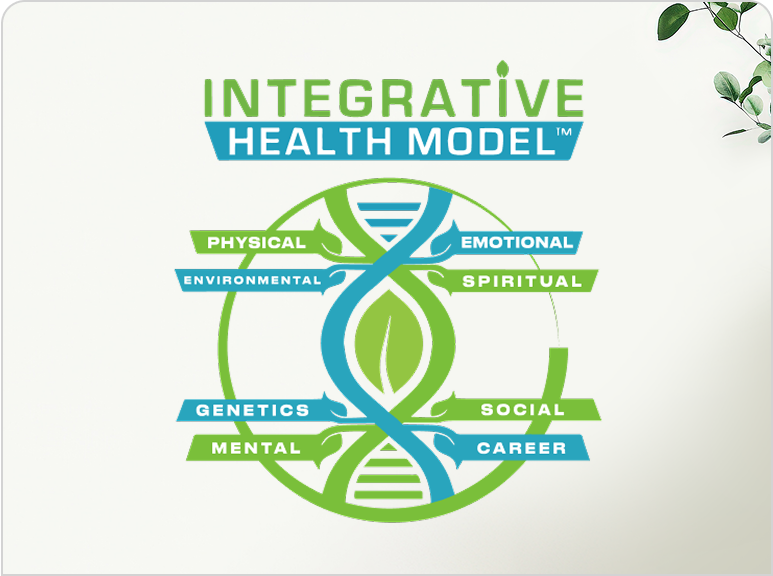How Do I Know if I Have a Hormonal Imbalance?

Hormones act as messengers, carrying signals throughout the body and controlling almost all of our essential functions. When you develop a hormonal imbalance, you can feel the effects in many different ways. Fortunately, naturopathic medicine can restore the balance of your hormones using natural methods that work with your body, not against it.
What is a Hormonal Imbalance?
A hormonal imbalance occurs when one or more hormones levels become higher or lower than usual. Because hormonal signals are interconnected, an imbalance in one will often affect others. Hormones manage everything from blood pressure to respond to stress, so a hormone imbalance can manifest with a wide range of symptoms.
What Causes Hormonal Imbalance?
Hormonal imbalances can result from a variety of factors, including lifestyle habits, medical conditions, and environmental influences. Chronic stress can elevate cortisol levels, disrupting adrenal function. Poor diet, obesity, and lack of exercise can affect insulin and thyroid hormones, while aging naturally decreases levels of reproductive hormones like estrogen and testosterone.Medical conditions such as polycystic ovary syndrome (PCOS), thyroid disorders, and diabetes are also common culprits. Additionally, exposure to endocrine-disrupting chemicals found in plastics and pesticides can interfere with hormonal regulation, exacerbating or causing imbalances over time.

How Do I Know if I Have a Hormonal Imbalance?
Hormone imbalances tend to develop over time, and the symptoms are often non-specific, leading conventional medical doctors to discount them. Some people who seek naturopathic treatment have a hormonal imbalance and have never realized it. Signs of a hormonal imbalance include:
- Fatigue and sleep issues
- Digestive issues
- Weight gain, especially around the abdomen
- Migraines
- Mood swings
- Night sweats and hot flashes
- Irregular menstrual periods
- Changes in hair and skin
An imbalance in thyroid hormones can cause issues with metabolism and energy. Adrenal hormones manage vital body functions like blood pressure and responding to stress. Insulin regulates the body’s use of glucose, a critical fuel for the cells, especially in the brain.
How do I know if my hormones are off?
You may have a hormonal imbalance if you feel tired, moody, or notice changes in weight, sleep, or skin. These signs answer questions like how do I know if my hormones are balanced, or how to know if my hormones are imbalanced. Other symptoms may include irregular periods or digestion issues. If you ask, how do you know if your hormones are imbalanced or how to tell if your hormones are out of balance, track physical and emotional shifts. These signs help answer how to know if you have hormonal imbalance. At Cutler Integrative Medicine, we use your health story to find answers.
Diagnosis and Testing Methods for Hormonal Imbalances
Understanding which hormones are out of balance requires a comprehensive evaluation. Unlike routine check-ups, diagnosing a hormonal imbalance often involves a combination of blood tests, imaging, and an in-depth review of symptoms and medical history.
Blood Tests
Blood tests are the most common and effective method for measuring hormone levels. They can assess a variety of hormones such as thyroid hormones (T3, T4, TSH), reproductive hormones (estrogen, progesterone, testosterone), and adrenal hormones (cortisol, DHEA). For instance, if a patient exhibits symptoms of fatigue, weight gain, or depression, a physician might order a thyroid panel to evaluate if hypothyroidism is the culprit.
Saliva and Urine Tests
While less commonly used than blood tests, saliva and urine tests can be valuable for assessing specific hormones, especially when testing for cortisol levels or other adrenal function markers. Saliva testing is often utilized in cases where a provider needs to measure hormone fluctuations throughout the day, providing a more comprehensive picture of adrenal and reproductive health.
Imaging Tests
In certain scenarios, imaging tests like ultrasounds, MRIs, or CT scans may be necessary. These are typically used when there is a suspicion of structural abnormalities, such as ovarian cysts, thyroid nodules, or adrenal tumors. An ultrasound of the thyroid, for example, can reveal nodules that might be affecting hormone production, while an MRI might be used to check for pituitary gland abnormalities.
Comprehensive Symptom Assessment
Since hormonal imbalances often have overlapping symptoms, a detailed symptom assessment is crucial. This involves tracking physical, mental, and emotional changes over time. Keeping a symptom diary can help both the patient and the healthcare provider identify patterns and triggers related to hormonal fluctuations.
Physical Examination
A physical exam can also provide insights into potential hormonal issues. For instance, excessive hair growth, skin changes, or unexplained weight fluctuations are visible indicators that can prompt further testing. Additionally, pelvic exams in women and testicular exams in men may reveal clues about hormonal health.
Evaluating Medical History and Lifestyle Factors
Lifestyle factors such as diet, stress levels, sleep patterns, and exposure to environmental toxins can significantly influence hormone levels. Therefore, discussing lifestyle and environmental factors during evaluation is essential. This helps pinpoint external contributors that might be disrupting hormone balance, such as chronic stress leading to elevated cortisol levels or poor diet affecting insulin and thyroid function.
Combining these diagnostic methods allows healthcare providers to develop a holistic understanding of an individual's hormonal health. This approach helps ensure accurate diagnosis and guides the creation of a personalized treatment plan to restore balance effectively.
How to test for hormonal imbalance?
Testing for hormonal imbalance uses blood, saliva, or urine to measure hormone levels. Many ask how to test for hormonal imbalance or look up imbalance hormones test options. Blood tests check thyroid, estrogen, testosterone, or cortisol. Saliva tests track hormone shifts across the day. Urine tests reveal hormone waste products. At Cutler Integrative Medicine, we choose the right test based on your symptoms and history.
Detailed Symptoms of Hormonal Imbalances
Hormonal imbalances can manifest through a range of symptoms that often go unnoticed until they disrupt daily life. Each hormone influences specific bodily functions, which means different imbalances can trigger distinct symptoms. Below is a detailed breakdown of how hormonal imbalances affect various aspects of health.
Metabolic Symptoms
Unexplained weight gain or loss is one of the primary signs of a metabolic imbalance. When the thyroid gland, responsible for regulating metabolism, produces too little hormone (hypothyroidism), metabolism slows down significantly. This can lead to weight gain, chronic fatigue, and increased sensitivity to cold temperatures.
On the flip side, an overactive thyroid (hyperthyroidism) accelerates metabolism, causing sudden weight loss, excessive sweating, and a rapid heartbeat. Other metabolic-related symptoms might include fluctuating cholesterol levels and difficulty maintaining energy throughout the day.
Reproductive Symptoms
Reproductive hormones like estrogen, progesterone, and testosterone can be easily disrupted. In women, imbalances often present as irregular menstrual periods, infertility, or severe PMS symptoms. Low levels of estrogen and progesterone can lead to missed or unpredictable periods, while high levels might cause heavier or more painful menstrual cycles
.Men might notice symptoms such as decreased libido, erectile dysfunction, or loss of body hair due to lowered testosterone levels. Reduced muscle mass and overall physical strength can also occur.
Skin and Hair Symptoms
Hormones directly impact the skin and hair. An imbalance can cause changes in texture and quality, often leading to stubborn adult acne, dry skin, or sudden hair loss.
Elevated levels of androgens (male hormones) in women, for instance, can cause unwanted facial hair growth (hirsutism) and persistent acne that doesn’t respond to typical treatments. Meanwhile, thyroid issues can result in hair becoming brittle and prone to breakage, or even cause patches of hair loss on the scalp.
Digestive Symptoms
Many people don't associate digestive issues with hormonal imbalance, but they are often closely linked. High estrogen levels can slow down digestion, causing bloating and constipation. Low levels, on the other hand, can speed up digestion, leading to diarrhea or increased sensitivity to certain foods. These fluctuations may be especially noticeable in women around their menstrual cycles.
Mental Health Symptoms
Hormones have a significant influence on mental health. Mood swings, anxiety, and depression are common in those experiencing hormonal shifts. For example, estrogen helps regulate serotonin—a neurotransmitter responsible for mood stabilization.
Low estrogen levels can result in decreased serotonin production, contributing to depressive symptoms. Cortisol, the body's main stress hormone, when elevated for long periods, can worsen anxiety and make it difficult to maintain restful sleep, causing mental exhaustion and irritability.
Each of these symptoms can appear on its own or in combination, making it challenging to identify the root cause without proper testing. Being aware of these signs can help individuals seek timely diagnosis and effective treatment options.
How are Hormonal Imbalances Treated?
Your evaluation begins with testing to determine whether you have an imbalance in one or more hormones. Dr. Cutler will review all the factors affecting your hormone levels and develop a plan to address them. This plan may use treatments such as:
- Eliminating toxicants (hormone-altering chemicals occur in many household items)
- Appropriate supplements
- Physical activity
- Diet and nutrition
- Stress reduction
- Decreasing Caffeine and alcohol use
Many people start to see symptom improvements within a few weeks as the lifestyle changes take effect. Detoxification can take time, depending on your level of toxicants. Almost all of us come into contact with hormone-altering chemicals multiple times a day, often but not always from plastics. Caffeine and alcohol also affect hormone balances and overall health, so you will benefit from limiting or eliminating them.
Hormone Imbalance Test
Hormone imbalance tests are designed to measure specific hormone levels in the body, providing insights into potential disruptions in metabolic, reproductive, and endocrine functions.
Common tests include blood tests, saliva tests, and urine tests. Blood tests are most frequently used to assess thyroid hormones, reproductive hormones, and adrenal hormones like cortisol.
Saliva tests, on the other hand, are often used to evaluate daily hormone fluctuations, while urine tests can measure metabolites of various hormones. These tests are crucial for identifying imbalances that could be contributing to symptoms like fatigue, weight gain, mood changes, or digestive issues.
When is the Best Time to Test for Hormone Imbalance?
The timing of hormone testing can significantly influence the accuracy of results. For women, testing reproductive hormones like estrogen and progesterone is best done on specific days of the menstrual cycle, usually between days 19-21 for optimal accuracy.
Cortisol levels fluctuate throughout the day, so testing should be done in the morning when levels are at their highest. Thyroid hormones can generally be tested at any time. It’s essential to consult a healthcare provider to determine the best timing based on individual symptoms and the hormones being evaluated.
What Can Hormone Imbalance Treatment Do?
Since hormonal imbalances often affect the metabolism, many people find that treatment gives them more energy and helps them lose weight more easily. You may see healthier-looking skin and hair. Many people notice improvements in mood and quality of sleep. Chronic digestive issues may also resolve without any other treatment.
Take the Next Step
Schedule a consultation with Dr. Doug Cutler and his team of expert naturopathic providers to learn more about hormonal imbalance. Call us at (248) 663-0165 today! Cutler Integrative Medicine is dedicated to your health and well-being.
Cutler Integrative Medicine is a premier award-winning wellness clinic that provides patients with unparalleled individualized naturopathic healthcare. Dr. Doug Cutler is a nationally renowned expert in Naturopathic medicine and has the highest training in his field, as well as in Environmental Medicine, IV Nutrient Therapy, and Detoxification. His ClubIV™ is one of the most extensive IV Nutrient Clinics in the country.
You May Also Like




.png)

.png)



%201.png)



.png)

.png)



.png)
.png)
.png)
.png)
.png)
.png)
.png)
.png)

.png)
.png)
.png)
.png)

.png)
.png)

.png)
.png)






.png)




.png)
.png)
.png)

.png)

.png)